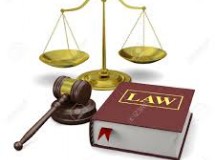- When writing a check, make sure you have the money to cover it.check book image by Rob Hill from Fotolia.com
Passing a check with non-sufficient funds is a crime, no matter where you live. West Virginia, however, is relatively lenient on this matter, but penalties are still enforced. According to the Lawdog website, in addition to penalizing the person who writes the bad check, any person or corporation who delivers a check, knowing there are not sufficient funds on deposit, or credit to cover the amount of the check, may be guilty of a misdemeanor and fined up to $100 and/or imprisoned up to 10 days, in the state of West Virginia. - According to the Badchecksuslegal website, if you knowingly write a check when there are insufficient funds in your bank to cover it, you have 30 days after the plaintiff sends a demand for payment to rectify the situation. If you fail to do this, the person to whom you wrote the bad check could sue you for the amount of money on the check, or $500, whichever is less. Keep in mind that not only can the courts require you to pay the amount of the bounced check, but you may also have to reimburse the plaintiff for court costs.
- According to the law, mitigating circumstances, however, are an appropriate defense. If you have lost your job, for example, and are unable to pay the amount of the check, then the Courts of West Virginia may grant you relief based on that, if you can prove it. Family and personal illnesses also apply under this law, but you must bring documentation to substantiate those life events.
- According to the Badchecks website, if you can prove that you acknowledge that you passed a bad check, and paid the complainant in full before he brought the lawsuit against you, the Courts of West Virginia may move to drop the case against you. Also, if you can prove that the mistake was your bank's--which is possible, but you must have the documentation to prove it--that, too, can be grounds for case dismissal.
- Passing a bad check can result in criminal charges. According to the Lawdog website, if the amount of your check is over $500, the court may choose to charge you with a felony. If the amount happens to be under $500, the court will find you guilty of a misdemeanor. As the Badchecks website points out, you can avoid conviction only if you pay not only the original cost of the check, but also the court costs connected with the crime. Once the courts put out a warrant against you, you can only pay the courts; you cannot directly pay the aggrieved party.
The Lawdog website points out that if you go to trial for the misdemeanor, you will have to pay up to $200 and/or serve six months in prison. If felony charges are involved, you will have to pay $500, and/or serve one to 10 years in prison.
Civil Penalties
Mitigating Circumstances
Successful Counter Defense
Criminal Charges
SHARE







































